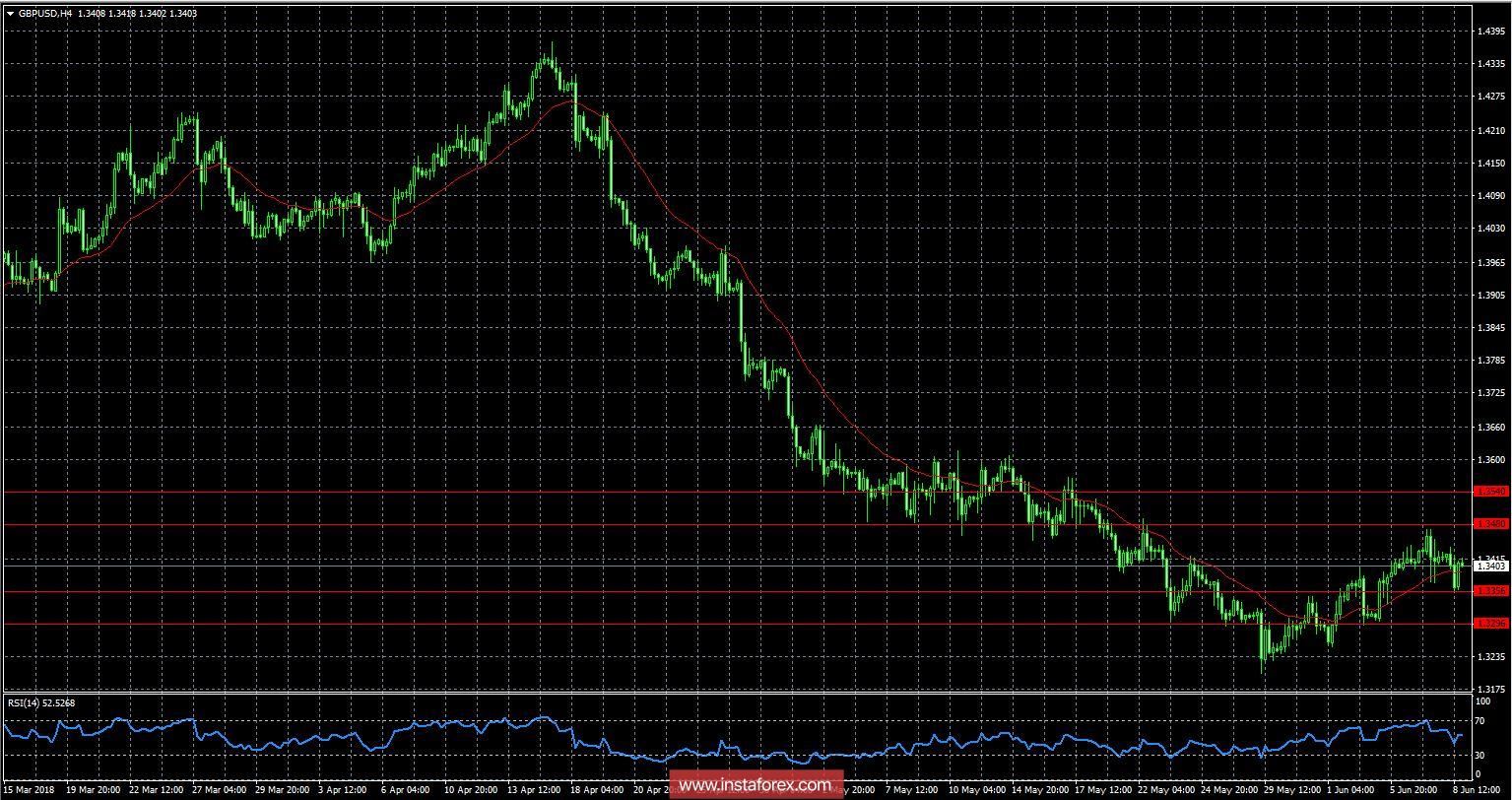Pound, like its continental neighbor, was able to improve its position somewhat, though not so noticeably. In general, the past week was characterized by almost complete absence of any serious macroeconomic data. That is not surprising on the eve of the meetings of the Federal Open Market Committee and the ECB's board on monetary policy. It is necessary to recognize that the British statistics was ambiguous. On one hand, the index of business activity in the services sector increased from 52.8 to 54.0, while in the construction sector it remained unchanged. However, the growth rate of housing prices slowed from 2.2% to 1.9%, which, apparently, was the reason for such a result in the index of business activity in the construction sector. True, statistics from the United States had a much more pronounced negative character. The only thing that can be regarded as positive news is the increase in the number of open vacancies from 6 633 thousand to 6 698 thousand. This news allowed to smooth out the negative impact caused by the increase in the number of applications for unemployment benefits by 20, 000. The growth in the number of open vacancies, which significantly exceeds the growth in the number of applications for unemployment benefits, makes it possible not to worry about the possible increase in unemployment. Those who lost their jobs for one reason or another will soon find a new one. However, the decrease in production orders by 0.8% is a strong cause for concern. Especially against the backdrop of the continuing growth of inventories in warehouses of wholesale trade for five consecutive months. In April, they grew by another 0.1%. So fears about the proliferation of the crisis of overproduction in the US are not so crazy.
Naturally, the main event of the week will be the results of the meeting of the Federal Open Market Committee. The Federal Reserve is expected to raise the refinancing rate from 1.75% to 2.00%, which has long been included in the value of the dollar. Hysteria will happen only if the Fed postpones the increase in the refinancing rate. But no one believes in this, since the probability of such a development of events tends to zero. Given the rather serious and continued strengthening of the dollar, it is quite obvious that after it becomes known about the increase in the refinancing rate, the market will not react with the further growth of the US currency. The fact that there is no doubt about the predictability of the Federal Commission's decision on open market operations is related to inflation data and producer prices, which will be published just before the announcement of the results of the meeting. Inflation should accelerate from 2.5% to 2.6%, and the rate of growth in producer prices from 2.6% to 2.7%. In conditions of inflation, it is quite logical to raise the refinancing rate. However, taking into account the fact that this development of events has long been incorporated in the value of the dollar and will not lead to its further growth, it will become its weakening already at the end of the week. The fact is that the dollar is so heavily overbought that the market needs only an excuse for weakening it, and there will be two such reasons. And very serious. After the policy meeting of the Federal Open Market Committee, data on retail sales will be published, whose growth rates should slow from 4.6% to 4.4%, as well as in industrial production. Lately, quite a few leading indicators quite seriously point to the risk of a crisis of overproduction in the American economy. So, together with production orders and stocks, the growth rate of industrial production should slow from 3.5% to 2.7%, which obviously will not add optimism to investors.
In addition to American statistics, one should not forget about the British ones, which will be much more positive. The main thing is inflation, which can grow from 2.4% to 2.5%, which will force the Bank of England once again to think about the possibility of raising the refinancing rate. Data on the labor market, which, at first glance, may seem neutral, should also be positive. Although the unemployment rate and the growth rate of the average hourly wage should remain unchanged, the number of applications for unemployment benefits is likely to decrease from 31.2 thousand to 29.5 thousand. In addition, it is predicted that the growth rate of retail sales will accelerate from 1.4% to 2.4%. The only thing that will cloud the mood of market participants, so this is industrial production, the growth rate of which should slow from 2.9% to 2.7%. Fortunately, they come out at the very beginning of the week, and all the rest of the time we are waiting for exceptionally positive data from the UK.
So, despite the expected increase in the refinancing rate in the US, the pound is likely to end the week at 1.3500.






















